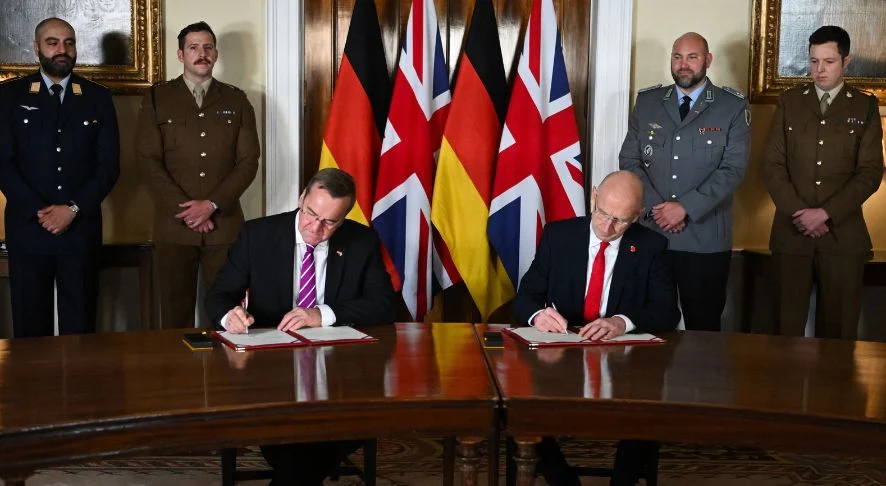Both countries Deepen Ties and Post-Brexit Amid Geopolitical Shifts
LONDON & BERLIN – July 15, 2025 –
In a landmark moment for European security and bilateral relations, the United Kingdom and Germany are poised to sign a comprehensive mutual defense treaty this week, the first of its kind since the end of the Second World War. This wide-ranging pact, set to be formally inked on July 17th before both parliaments recess for summer, signals a profound strengthening of cooperation between two of Europe’s largest economies and military powers.
The forthcoming treaty, the culmination of 18 rounds of intense negotiations, builds upon the “Trinity House Agreement” signed in October 2024. A cornerstone of the new accord is a mutual assistance clause, stipulating that any strategic threat to one nation will automatically be considered a threat to the other. This reciprocal commitment represents a significant step towards a more integrated European defense posture, particularly as concerns grow over the future of transatlantic security arrangements.
While firmly reaffirming their commitment to NATO as the bedrock of collective defense, the inclusion of such a robust mutual assistance clause underscores a clear drive by European allies to enhance their security cooperation independently. This move is seen by many analysts as a strategic response to evolving geopolitical challenges, including Russia’s continued aggression in Ukraine and the potential implications of a shifting US foreign policy.

Beyond the mutual defense pledge, the treaty is expected to encompass a broad spectrum of cooperation areas. Key provisions anticipated include:
* Deep Precision Strike Capabilities:
Joint development and procurement of advanced long-range missile systems, exceeding 2,000 kilometers in range, to bolster European deterrence and defense. This includes integrating common missile systems into drone fleets.
* Enhanced Interoperability:
Continued efforts to strengthen military interoperability, building on existing initiatives like the German-British Amphibious Engineer Battalion 130 and collaboration on platforms such as the Boxer armored vehicle.
Defense Industrial Cooperation:
Germany’s Rheinmetall is reportedly set to invest in a new large-calibre gun manufacturing facility in the UK, re-establishing this capability in Britain after a two-decade hiatus.
The treaty aims to foster a more resilient and competitive European defense industrial base.
* Addressing Hybrid Threats: Collaboration on cyber defenses, countering disinformation, and enhancing critical infrastructure resilience, reflecting the multifaceted nature of modern security challenges.
* Support for Ukraine: A sustained commitment to supporting Ukraine’s defense efforts, including through joint arms production and military assistance.
* Broader Bilateral Ties: The treaty extends beyond defense to include cooperation on issues like illegal migration, transportation, scientific research, innovation, and cross-border exchanges, reflecting a holistic approach to the UK-German relationship.
The journey to this historic treaty began with a joint declaration on enhanced defense cooperation signed by then-UK Defence Secretary John Healey and German Defence Minister Boris Pistorius in July 2024. This laid the groundwork for the “Trinity House Agreement” in October, which specifically focused on deepening defense ties across all domains. The current treaty is seen as the overarching framework that codifies these efforts and expands the scope of their strategic partnership.
For both the UK and Germany, this agreement carries significant weight. For the UK, post-Brexit, it reinforces its commitment to European security and provides a robust framework for cooperation with a key continental partner. For Germany, it strengthens its defense architecture and offers a formal defense arrangement with a second European nuclear power, complementing its existing ties with France through the Aachen Treaty.
The implications for wider European security are substantial. This bilateral agreement could serve as a blueprint for other partnerships within Europe, fostering a more integrated and resilient continental security architecture that is less reliant on external guarantees. As the continent grapples with persistent threats and evolving geopolitical dynamics, the UK and Germany’s historic defense treaty stands as a powerful testament to their shared commitment to collective security and a stable future.
